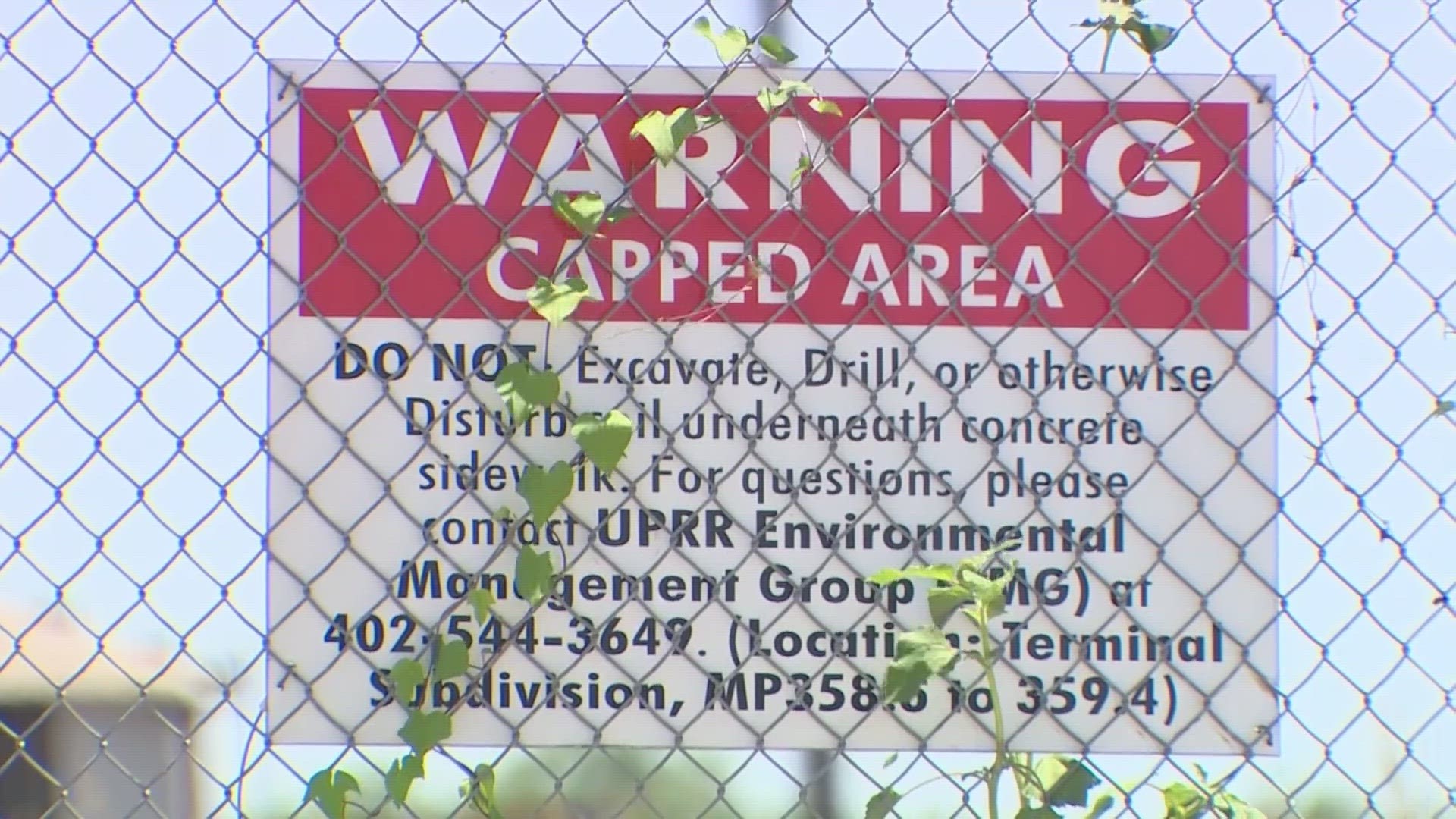HOUSTON — Houston Mayor Sylvester Turner on Thursday announced plans to eventually relocate families living near a Union Pacific railyard site in Fifth Ward that's been blamed for high cancer rates in the area.
For years, neighbors have blamed a mass of creosote beneath the ground at the site for the heightened rates. Creosote, a wood preservative, was used to treat railroad ties before Union Pacific bought the site.
The mayor said the plan to relocate around 60 families will cost the city somewhere between $24 million and $26 million.
A Union Pacific spokesperson said they're waiting on soil testing results before deciding its next steps, but neighbors and Mayor Turner said there's already enough data and no time to wait.
“A year ago today, my mom passed from cancer," said Pamela Matthews, who shared her story at City Hall on Thursday along with others who grew up near the railyard.
“Right now, and I’ve not talked about it very much, my husband has been dealing with cancer for the last nine months," said Kathy Blueford-Daniels, an elected Houston ISD trustee.
Last year, the Houston Health Department found highly toxic chemicals called dioxins in all 42 soil samples taken within a couple of blocks of the railyard.
Earlier this year, following a lawsuit, the Environmental Protection Agency announced it will oversee more soil testing by Union Pacific.
“We know enough, and quite frankly, U.P. knows enough," said Mayor Turner.
Turner announced a city "strike force" to help relocate people who are living within two to three blocks from the site.
“This will be a complex process with many issues and interests to accommodate, but that’s an important reason to begin this work sooner rather than later," he said.
A Union Pacific spokesperson also had a message for families impacted by the site:
"Union Pacific does care and that's why we need to do a sampling and testing to understand the extent and source of contamination to make decisions, and Union Pacific has never said they will not take care of what they're responsible for. They will and that's why we need testing," Union Pacific spokesperson Toni Harrison said.
City officials hope they can secure some federal funding to help with relocation efforts. They said they want to start as quickly as possible.
While there's no firm timeline yet, one top official told KHOU 11 it would take "several administrations" to relocate everyone.

